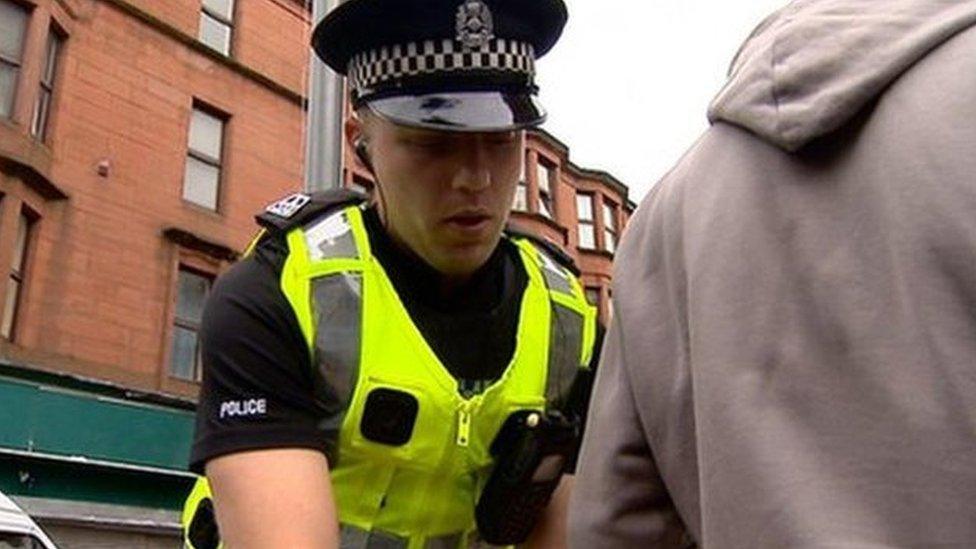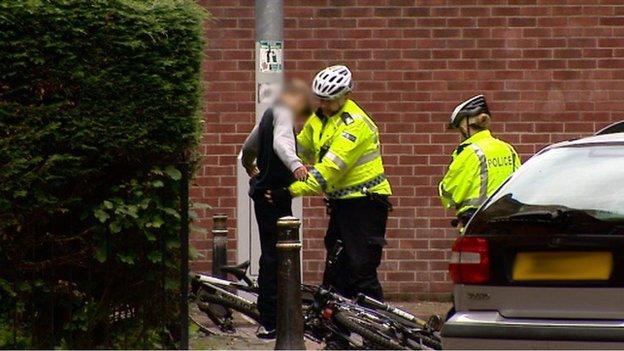Scottish government to raise age of criminal responsibility
- Published
Mark McDonald said there was a "clear and compelling" case for raising the minimum age
The Scottish government is to introduce a bill to raise the age of criminal responsibility to 12.
Children as young as eight can have a criminal record in Scotland, albeit via the decisions of children's hearings rather than the courts.
The government held a consultation, external earlier in the year after an advisory panel backed raising the limit to 12.
Early Years Minister Mark McDonald told MSPs the case for change was "clear and compelling".
He said it had been backed by the United Nations, police, prosecutors, victims' groups and young people, adding: "This is emphatically the right time and the right approach to raise the minimum age of criminal responsibility."
The current age of criminal responsibility, when a child is considered capable of committing a crime and old enough to stand trial and be convicted of an offence, is currently set at 10 in England, Wales and Northern Ireland.
In Scotland, while children cannot formally be prosecuted in a court until they are 12, from the age of eight they can go before a children's hearing and have these judgements added to their criminal record.

Children as young as eight can currently have a criminal record in Scotland
In 2015, Lib Dem MSP Alison McInnes put forward amendments aimed at making the same change to a criminal justice bill in the previous Holyrood session, but saw them voted down at committee level.
Mr McDonald said he wanted to put on the record his thanks to Ms McInnes for pressing the issue.
The Scottish government set up an advisory group on the subject that same year, which came back with a report recommending the age of responsibility be raised to 12.
A consultation was subsequently held between March and June 2016, with the Scottish government saying it would "inform a decision by ministers".
'Profoundly abusive backgrounds'
Leading QC Derek Ogg told the BBC's Good Morning Scotland programme that it was important to take into account the background of a child when considering prosecution.
He said: "The thing that we've got to remember in all of this is that a child who offends is himself a victim.
"That's a child that we're talking about who's been let down. It may be parenting, it may be mental health services, it may be social services.
"The vast majority of children - and I'm talking about children until 16 - the vast majority of children who come into contact with criminal authorities and criminal courts are from profoundly abusive backgrounds, whether it's sexual abuse, criminal abuse or poverty.
"So we have to bear in mind that we are dealing with very vulnerable children when they come into contact with the criminal justice system."
Tory MSP Douglas Ross said the change was backed by "the vast majority of experts", although he questioned how the Scottish government would build and sustain public confidence in the change. Mr McDonald replied that there would be engagement through the course of stand-alone legislation being passed.
Scottish Labour backed the change, with Claire Baker saying a "strong and persuasive argument" had been made by a range of groups.
The Scottish Greens also supported the move, with John Finnie saying bringing Scottish policy into line with the UN Declaration on the Rights of the Child was "very welcome".
And Lib Dem MSP Liam McArthur called it a "national embarrassment" that eight-year-olds are currently treated as criminals rather than children.
The Scottish Youth Parliament said the change was an "important step" that would "help ensure that Scotland is a fair place for children, and shift focus to supporting children instead of criminalising them".
- Published28 June 2015
